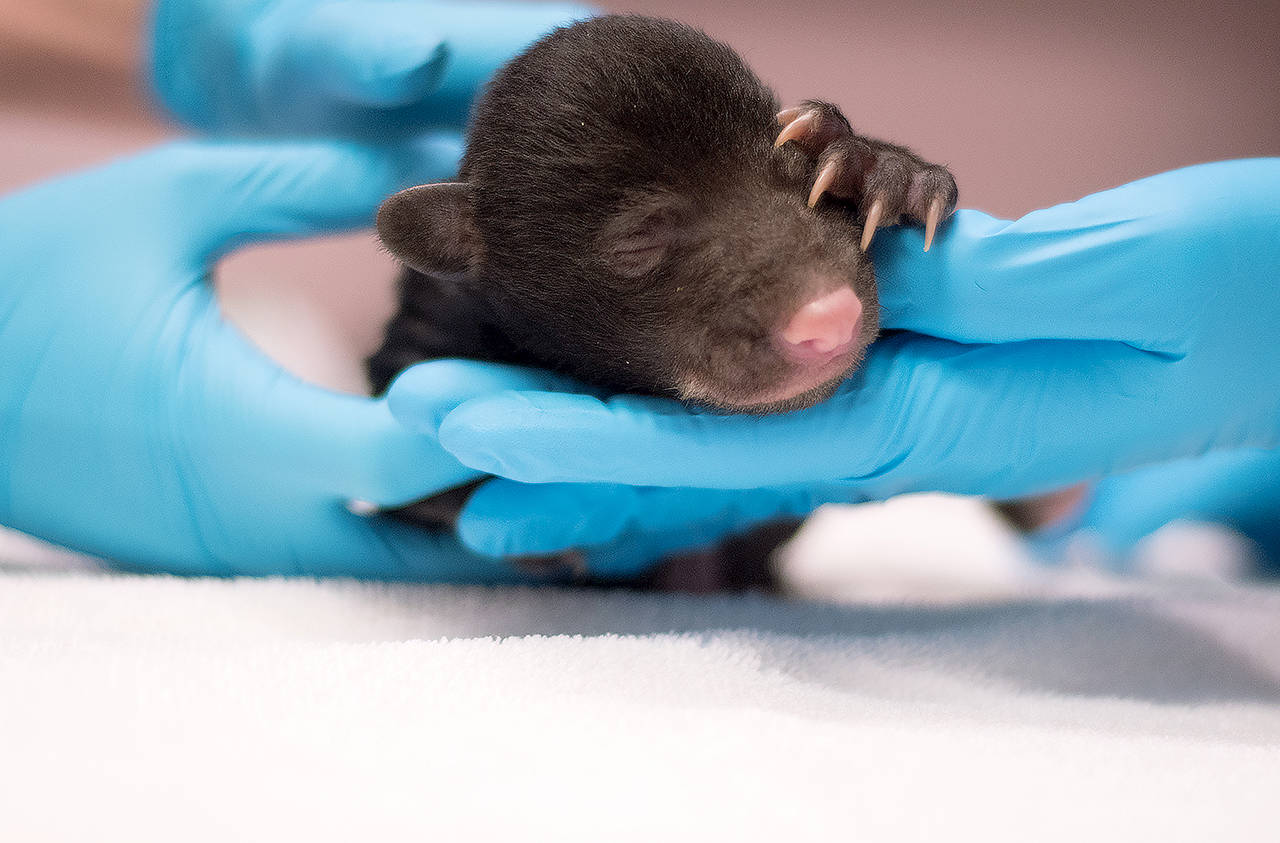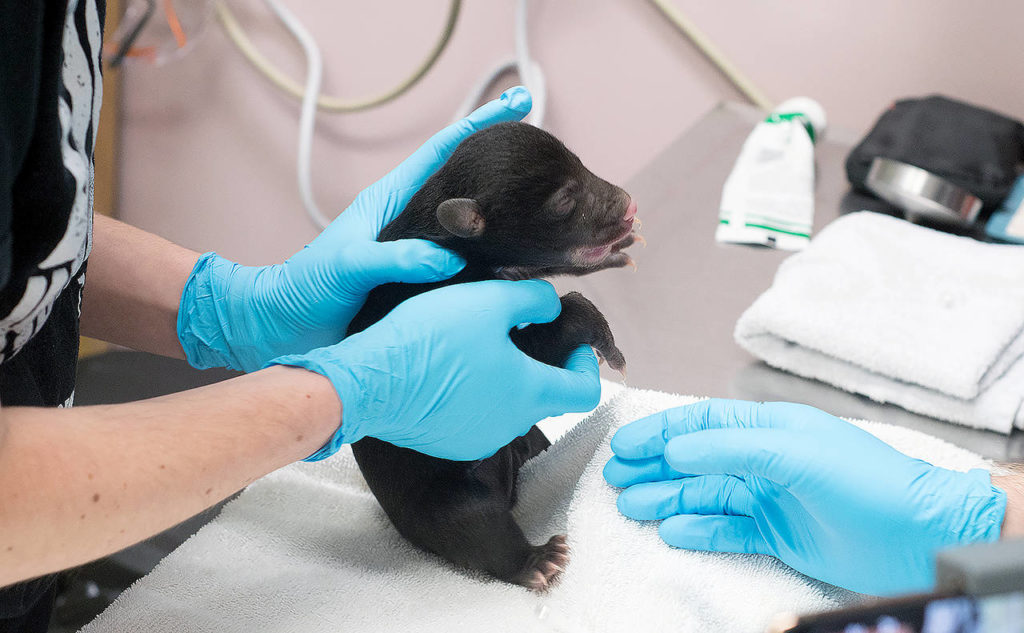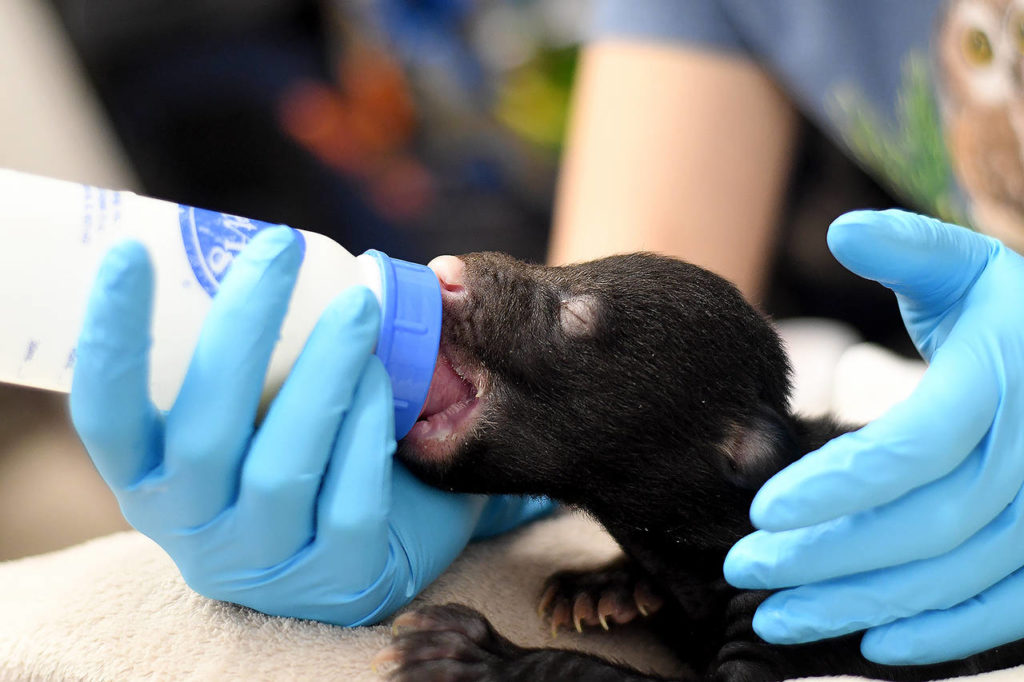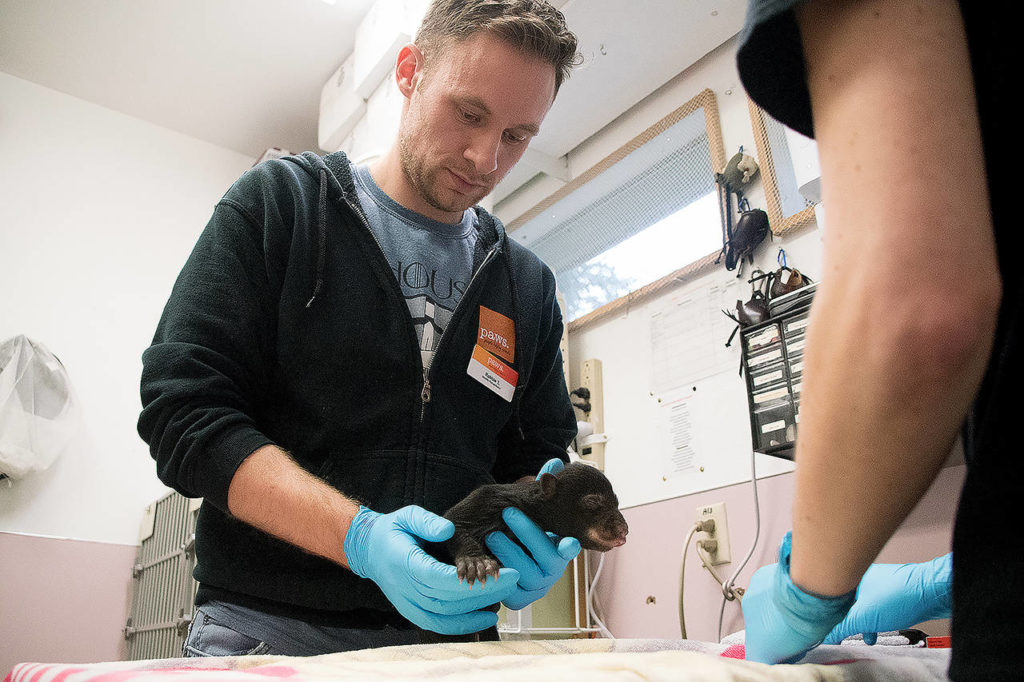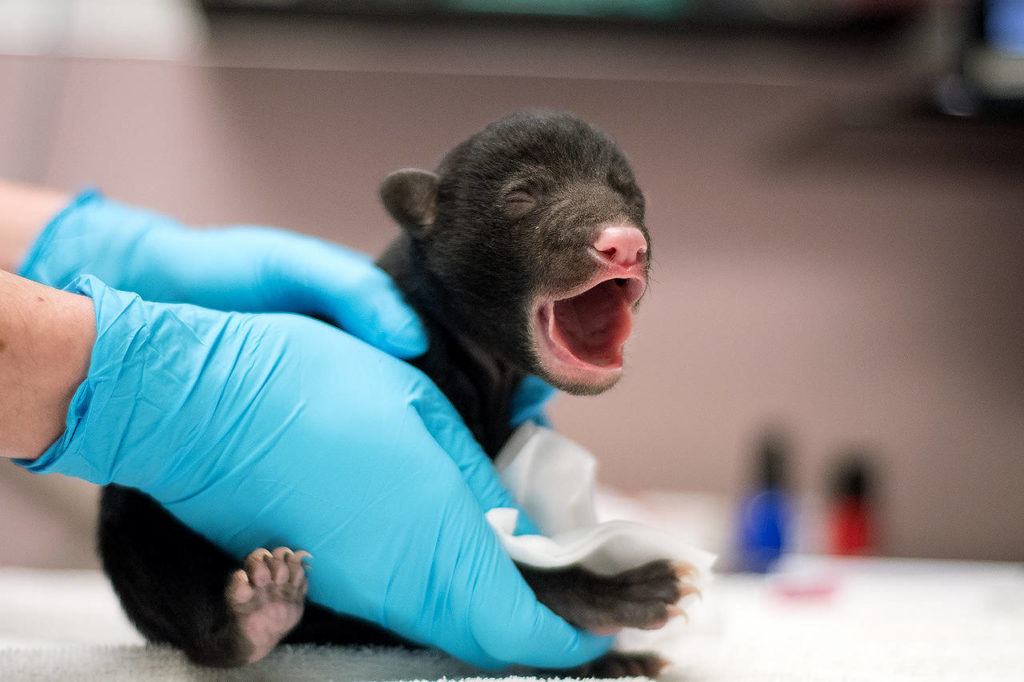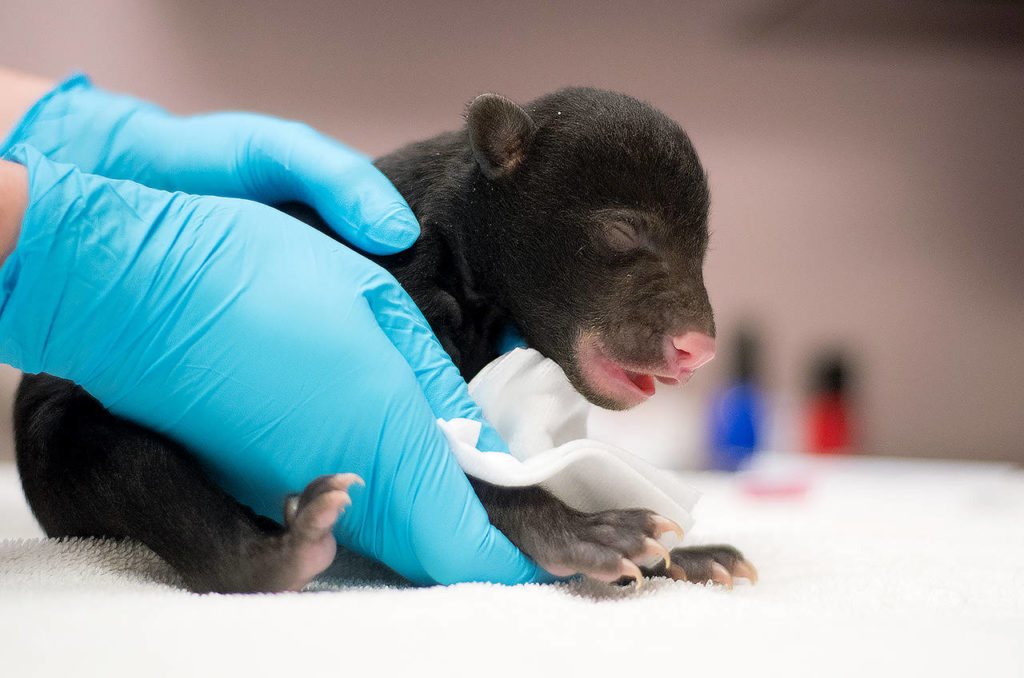There’s a bear boom at PAWS, the Lynnwood-based nonprofit that shelters and rehabilitates animals. Just as the pandemic has increased human needs, it has been costly for groups that help critters.
In February, a tiny brother and sister arrived at the agency’s Wildlife Center. American black bears, they weighed about 1½ pounds each.
Their mother ran away after a researcher in southwest Washington inadvertently disturbed her den, scaring her off, said Dr. Nicki Rosenhagen, a wildlife veterinarian at the center.
“We now have 10 orphan bears,” said Laura Follis, PAWS director of marketing and communications.
Seven rescued black bears are due to be released back into the wild next week by the state Department of Fish and Wildlife, Rosenhagen said. Those two babies, now at least 12 pounds each, will be in PAWS’s care until the spring of 2021, Follis said.
Bear care is tricky business. People tending to bears’ needs must make sure not to interact in such a way that the animals develop a positive response to humans. “We go to great lengths not to habituate them to people,” Follis said.
Feeders wear bear suits as disguises, once the cubs’ eyes are open. Those costumes are scented by placing them for a time with other bears.
It’s all expensive. A 10-month stay for just one orphaned bear can cost as much as $3,500, according to the PAWS website. There are veterinary costs and the seeds, nuts, berries, fish and other foods needed to imitate their natural diet.
Heidi Wills, who took over as CEO of PAWS earlier this year, said the nonprofit has been hard hit by the pandemic.
“We couldn’t have our PAWS Wild Night in April,” she said. The benefit gala and auction, normally attended by 400 people, is the agency’s largest fundraiser, bringing in about $600,000 annually, she said.
“Our demand is higher than ever,” Wills said. “We’re hoping people will give during GiveBIG.”
A two-day effort this year, Washington GiveBIG is a fundraising event organized by the nonprofit 501 Commons to help tax-exempt organizations statewide. It continues through midnight May 6, with some gifts being matched by other donors and employers.
Along with PAWS, the Everett Animal Shelter and Pawsitive Alliance are among animal-helping agencies participating in GiveBIG.
The PAWS staff is being stretched because the agency isn’t using any volunteers, in keeping with precautions meant to curb the spread of the coronavirus. Cat City, a branch of PAWS in Seattle, is temporarily closed so staff can help in Lynnwood, Wills said.
“We’re doing our very best to provide care for wildlife,” said Rosenhagen, adding that along with the bears there are 70 baby ducks plus robins, jays and finches at the Wildlife Center. “Our baby season is in full swing.”
And the virus hasn’t slowed people’s hope to adopt pets — quite the opposite, Wills said.
“I think mainly because of social distancing at this time, people are more interested than ever in companion animals,” she said. “People are driving long distances. We’ve had people drive down from Bellingham.”
During the pandemic, the adoption process is by appointment only, and includes an online questionnaire. Even in this bear market of sorts, “we’re an essential service, doing what we can for people,” Wills said.
Can you catch COVID-19 from your dog or cat?
“My understanding is that people can give it to animals, not the other way around. The chance of transmission is very low,” Rosenhagen said. Tigers at the Bronx Zoo developed the disease, which was believed to have been transmitted by a zoo worker who had COVID-19 but no symptoms.
At PAWS, those working with animals usually wear gloves but now have added masks.
Two weeks ago, the two baby bears were weaned and are now dish fed.
“Their base chow, omnivore chow, is supplemented with fruits, vegetables and protein like worms, fish and eggs, things they would encounter in the world,” Rosenhagen said.
Next week, the seven older bears — four on one day and three the next — will be released by state officials in the North Cascades and the southern Cascades. Rosenhagen wouldn’t say exactly where they’re headed.
“The less positive interaction with humans, the better,” she said.
Julie Muhlstein: 425-339-3460; jmuhlstein@heraldnet.com.
GiveBIG for animals
Agencies that help animals are struggling through the pandemic. During the GiveBIG event, matching money is available to boost donations. Through midnight May 6, GiveBIG donations may be made at:
PAWS: paws.org/
Everett Animal Shelter: givebigwa.org/everettanimalshelter
Pawsitive Alliance: givebigwa.org/pawsitivealliance
Talk to us
> Give us your news tips.
> Send us a letter to the editor.
> More Herald contact information.
